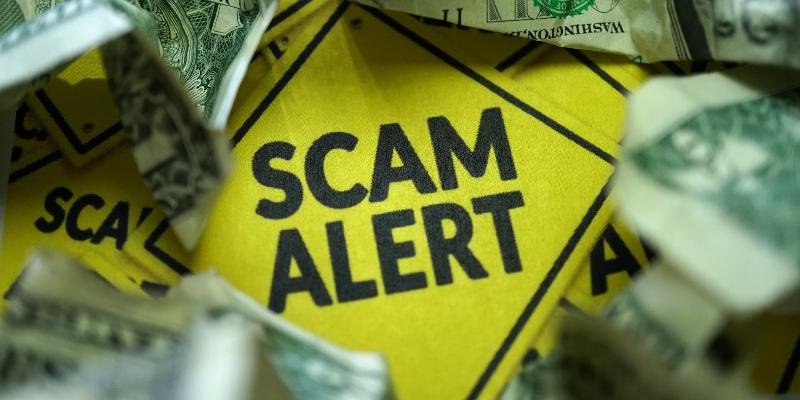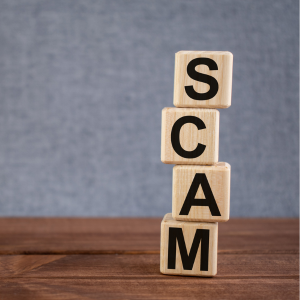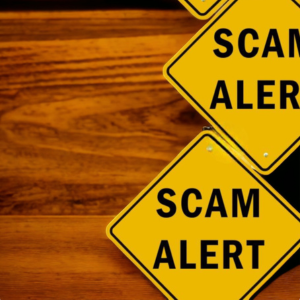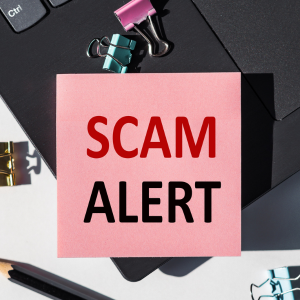
Understanding Common Scams in Real Estate Transactions
Knowing about typical scams to protect your money is essential when buying or selling real estate. Scammers often take advantage of weaknesses in buyers and sellers through schemes like title fraud, in which they alter paperwork to transfer property ownership illegally.
In a common fraud called the ‘phantom property’ scam, scammers advertise fake or misrepresented homes to unsuspecting buyers. There is also a lot of wire fraud, where crooks steal money by intercepting emails between two people and sending them to fake accounts.
Another type of fraud is contract manipulation, where one party changes the conditions without the other party’s awareness. Understanding these dishonest tactics in real estate transactions lets people spot warning signs and take precautions against possible land sale fraud.
Sell your land safely and confidently by working with trusted buyers who protect you from scams like title fraud, phantom property schemes, and contract manipulation. To learn more ways to avoid fraud, read other FAQ’s here.
Identifying Red Flags: Signs of a Potential Land Sale Scam
When buying or selling real estate, it is essential to watch for signs that a land deal might be fraudulent. A price that looks too good to be true is one of the most common warning flags that someone is trying to scam you.

Be cautious if the vendor requires immediate decisions or exerts pressure to make hurried payments without adequate documentation. A lack of verifiable information regarding the property, such as absent titles or records, is another substantial indicator of a potential scam.
Scammers may avoid meeting in person or showing the property and instead employ high-pressure phone or email methods. Thorough investigation and independent verification are crucial, including verifying real estate listings and ownership details with official sources.
Notice communication irregularities, including contact information changes or evasive responses to direct inquiry. Knowing these warning signals and being vigilant during negotiations can significantly lower your risk of land sale fraud.
Understanding Market Value Before Selling Your Property to Avoid Scams
Knowing the market value is essential to avoid land sale scams when you sell your property. Market value shows what a buyer is willing to pay, and knowing this can help you set a reasonable and competitive asking price.
Examine prior sales of comparable houses in your area and take location, size, condition, and amenities into account to get a realistic sense of market value. Public records or speaking with a reputable real estate agent who is aware of local market trends are two ways to obtain this information.
Avoid unsolicited offers well above or below market value, which may be fraudulent. An informed approach prevents fraudsters from exploiting sellers’ ignorance of property value.
Understanding your property’s market value enables you to effectively negotiate discussions and identify red flags that may indicate fraudulent activities in real estate transactions.
A Guide to Due Diligence for Sellers: Avoiding Property Scams
When selling property, it’s important to do your due diligence to avoid land sale scams and make sure the deal goes well. Start by doing a lot of research on the buyer’s past, including checking their ID and making sure they have the money to make the deal.
Review the buyer’s history for any red flags, such as previous fraudulent activities or legal issues. Confirming that all documents the buyer presents are authentic and up-to-date, including proof of funds or mortgage approvals, is essential.
Consult a trusted real estate agent or attorney for paperwork and qualification advice. Title documents may reveal liens and encumbrances that could hinder the sale.
Use escrow services to securely manage funds until all conditions of the sale are met. This scrutiny level helps mitigate risks associated with fraudulent buyers and secures your investment during property transactions.
Steps to Verify the Authenticity of a Land Buyer
Start with thorough background checks to authenticate land buyers and prevent real estate scams. To authenticate the buyer’s identification, request a driver’s license or passport, and examine public records.
Bank statements or proof of funds are needed to verify their financial capabilities to complete the transaction. Additionally, get advice from real estate brokers or attorneys to assess the buyer’s purchasing history.
Search for any previous fraudulent activity associated with the individual’s name or business entity using online resources. Directly engaging with prior sellers who have interacted with the client can also provide valuable insights into their intentions and reliability.
If you carefully follow these procedures, you may lower the dangers of land sale scams and make your real estate transactions safer.
Essential Documents Required for a Secure Land Sale
When engaging in a land sale, ensuring the transaction’s security is paramount, and having the right documents is essential to protect yourself from potential land sale scams. The most crucial document is the title deed, which verifies ownership and should be thoroughly examined for authenticity and any encumbrances such as liens or mortgages.
In order to verify the property’s measurements and limits and avoid disagreements over land size, a certified survey plan is also essential. Additionally, acquiring a tax clearance certificate assures that there are no unpaid property taxes that could hinder the transaction.
The sales agreement, which contains the specifics of the transaction, including the purchase price and conditions of sale, must be carefully reviewed. In order to stop fraudulent impersonation during the transaction, verification of identity for both parties is another essential document.
Finally, conducting due diligence by accessing local land registry records can reveal any historical issues with the property or previous fraudulent activities associated with it. These essential documents collectively safeguard your real estate investment from scams and ensure a secure transfer of ownership.
Sell your land quickly and hassle-free with the proper documents, from a clear title deed to a verified sales agreement. Avoid scams and contact Fast Land Offers today for a secure cash offer.
Legal Considerations for Safe Land Transactions
Understanding the law is essential to avoiding property sale fraud. Proper due diligence comprises checking the property’s title and ensuring no liens or encumbrances could compromise ownership.
Hiring an experienced real estate lawyer can be a huge help when it comes to understanding complicated legal paperwork and making sure local laws and regulations are followed. Examining property easements and zoning restrictions is crucial to preventing future conflicts or land use restrictions.
Utilizing escrow services can further protect both buyers and sellers by securely holding funds until all contractual obligations are met. Always ensure that all agreements are documented in writing, with clear terms regarding purchase price, payment schedules, and contingencies, thus providing a legally binding framework for the transaction.
Avoiding fraud can be facilitated by being aware of common fraudulent schemes, such as impersonating legal owners or using fictitious titles. People can greatly lower the risks involved in real estate transactions and safeguard their investment from possible scammers by giving these legal factors top priority.
The Role of Title Insurance in Preventing Fraud in Land Sales
Title insurance plays a crucial role in preventing fraud in land sales by offering a layer of protection against potential legal issues that may arise from defects in the title. These defects could include undisclosed liens, forged documents, and other encumbrances that can jeopardize real estate transactions.
Title insurance firms undertake rigorous title searches to identify any existing claims or disputes involving the property, ensuring that buyers are fully aware before making a purchase. By addressing these problems early on, title insurance helps to avoid costly legal fights and financial damages caused by fraudulent activity.
When purchasing title insurance, buyers gain peace of mind knowing that their investment is protected against unforeseen challenges related to ownership rights. This safeguard not only deters fraudsters but also reassures lenders who rely on clear titles for issuing mortgages.
Title insurance helps maintain real estate market confidence and integrity, lowering the danger of land sale scams.
Engaging Trusted Professionals: Lawyers and Real Estate Agents
Title insurance helps maintain real estate market confidence and integrity, lowering the danger of land sale scams.
A competent real estate lawyer will meticulously review contracts, verify property titles, and identify any red flags that may indicate potential fraud. Meanwhile, a reputable real estate agent brings deep market knowledge and negotiation skills, helping you assess property values accurately and avoid overpaying or falling victim to deceitful sellers.
Utilizing their experience, you may perform comprehensive due diligence on potential properties and sellers. Reliable professionals possess access to networks that provide supplementary verification tiers, substantially diminishing the likelihood of encountering fraudulent schemes in your real estate pursuits.
While lawyers and real estate agents help protect you from scams, another safe and hassle-free option is to sell your North Carolina land faster and in other states in the United States by working with us for a quick cash offer.
Protecting Personal Information During Property Sales
In the realm of real estate transactions, safeguarding personal information is crucial to protect against land sale scams. Buyers and sellers should be vigilant in handling sensitive data such as social security numbers, bank account details, and property deeds.
Sharing documents securely and encrypting email correspondence can dramatically reduce the risk of information theft. Real estate brokers, lawyers, buyers, and sellers must be thoroughly vetted.
Avoid using public Wi-Fi networks when accessing financial information related to property sales to prevent unauthorized access. Implementing strong passwords and enabling two-factor authentication on accounts associated with real estate transactions adds an additional layer of security.
Knowing scammers’ frequent phishing strategies might help people spot false efforts to steal personal information during property deals.
Creating Secure Payment Terms in Property Sales Agreements
When crafting secure payment terms in property sales agreements, it is crucial to implement strategies that protect both buyers and sellers from potential land sale scams. Start by ensuring all payment terms are explicitly detailed within the contract, including the total purchase price, deposit amounts, and payment schedules.

Escrow services can offer security by keeping payments until contractual commitments are completed. Preventing fraud requires authenticating these services.
Before making any financial transactions, do your research on the property’s title and ownership. Set financing and inspection contingencies to protect interests if concerns develop during the transaction.
In order to guarantee that all agreement clauses are in accordance with local regulations and industry standards, it is recommended that both parties retain legal counsel who specializes in real estate law to review and validate them. Stakeholders can substantially reduce the risks associated with fraudulent activities in real estate transactions by emphasizing transparency and meticulous documentation in payment arrangements.
Tips for Negotiating Safely with Potential Buyers
When negotiating safely with potential buyers in real estate transactions, it’s crucial to implement strategies that protect against land sale scams. Start by thoroughly researching and verifying the credibility of the buyer, ensuring they have a legitimate interest in purchasing your property.
Avoid requesting personal information or financial details until you have verified the buyer’s authenticity, and instead utilize secure communication channels to discuss terms and conditions. An additional layer of protection can be provided by employing a seasoned real estate agent, as they are adept at identifying red flags and navigating intricate negotiations.
Always insist on written agreements to formalize offers and counteroffers, which helps prevent misunderstandings and fraudulent alterations. Utilizing escrow services for holding funds during the transaction process adds another safeguard, ensuring money is only transferred once all contractual obligations are met.
Sellers can reduce land sale scam risks and negotiate with buyers by taking these steps.
Avoiding Online Scams When Marketing Your Land for Sale
It is imperative to employ strategies that safeguard you from potential fraud when marketing your land for sale online. Begin by selecting platforms that are reputable, have a history of successful transactions, and have implemented robust security measures.
It’s critical to use tactics that shield you from potential scammers while advertising your land for sale online. Start by selecting trustworthy platforms that have a track record of successful transactions and robust security measures.
To avoid unlawful access to funds, secure all financial transactions with reputable escrow services or legal professionals. Watermark photographs and documents associated with your property listings to prevent illegal usage or misrepresentation by scammers.
Regularly update your passwords and utilize two-factor authentication for all online accounts associated with your real estate marketing efforts, ensuring better protection against cyber threats. By staying vigilant and informed about the latest scam tactics, you can effectively safeguard your real estate transactions when selling land online.
Avoid online scams and safely sell your land by working with a trusted cash for land company in Florida and nearby United States states that offer fast, secure cash transactions.
How to Know If a Land Sale Is Legit?
You must identify legal property sales to avoid scams while buying land. Conduct rigorous due diligence on the seller and property to establish if a land deal is legitimate.
Check the title deed with the local land registry office to verify the seller’s credentials and legal ownership of the land. The property’s liens and encumbrances must also be reviewed.
Obtain the services of a seasoned real estate attorney to thoroughly review all documents associated with the transaction and verify their authenticity. Furthermore, inspect the property in person to evaluate its condition and confirm its boundaries.
Be wary of deals that seem too good to be true or involve pressure tactics urging you to make quick decisions. Conducting a comprehensive background check and obtaining a professional appraisal can further affirm whether a land sale is authentic, safeguarding your investment from fraudulent schemes.
How Can I Avoid Being Scammed as a Seller?
Sellers must follow fundamental real estate transaction tactics to avoid land sale fraud. Before proceeding, verify potential buyers’ identities and finances.
Conduct due diligence by researching the buyer’s background and checking for any red flags associated with fraudulent activities. Utilize secure methods for communication and document exchanges, ensuring all agreements are in writing and legally binding.
Get competent counsel and supervision from a respected real estate agent or attorney who specializes in property transactions. Avoid unnecessary sharing of personal information and use trusted internet sites.
Regularly review local regulations and stay informed about common scam tactics in the real estate market to enhance your awareness. By taking these proactive measures, sellers can effectively shield themselves from scams and ensure secure, successful real estate transactions.
What Are Common Real Estate Scams?
Unfortunately, real estate scammers always find novel ways to defraud buyers and sellers. Land sale scams involve scammers selling property they don’t own or providing phony documentation to deceive buyers.

Title fraud is another common scam in which fraudsters counterfeit documents to transfer property ownership without the owner’s knowledge, causing financial and legal issues. Real estate agents often use bait-and-switch methods, advertising properties at low prices but making them unavailable once a buyer shows interest, driving them toward higher-priced possibilities.
Scammers now use false listings or hijack authentic ones to collect deposits from several interested parties without renting a home. In real estate transactions, wire fraud is a major risk. Cybercriminals steal email accounts and send fraudulent payment instructions to redirect funds for closing fees or down payments into their own accounts.
Knowing these frequent real estate scams is essential for safe property market transactions.
Want to sell your land fast? Skip the headaches. Call (843) 606-1001 for a fair cash offer and a smooth, stress-free process.
Helpful Blog Articles
- The Ultimate Guide to Selling and Marketing Land
- Everything You Need to Know to Sell Land on Zillow
- How To Sell Land Without A Title Company
- How To Sell Part Of Your Land To A Real Estate Developer
- Essential Tips To Safeguard Your Real Estate Transactions From Land Sale Scams
- Effective Strategies For Screening Land Buyers When Selling By Owner In Real Estate

| CON ARTISTS | SCAMMING | MONEY | MORTGAGE | LENDER | NOTARIZATION |
| NOTARIZED | ESCROW ACCOUNT | CREDIT | THEFT | INVESTMENT PROPERTY | INVESTMENT PROPERTIES |
| REAL ESTATE INVESTOR | ATTORNEYS | INTEREST RATES | CONTRACTUAL RIGHTS | RENTAL PROPERTY | RENTAL PROPERTIES |
| IDENTITY THEFT | BBB | BETTER BUSINESS BUREAU | BETTER BUSINESS BUREAU’S | FLORIDA | STATE OF FLORIDA |
| BORROWERS | COMPANY | U.S. | PROPERTY OWNERS | PHONE NUMBER | PHONE |
| PRIVACY | POLICY | LAW ENFORCEMENT | INVESTORS | INSPECTOR | HOME INSPECTION |
| FTC | EMAIL ADDRESSES | EMAIL ADDRESS | DREAM | CRIME | CONFIDENCE |
| OF REAL ESTATE |